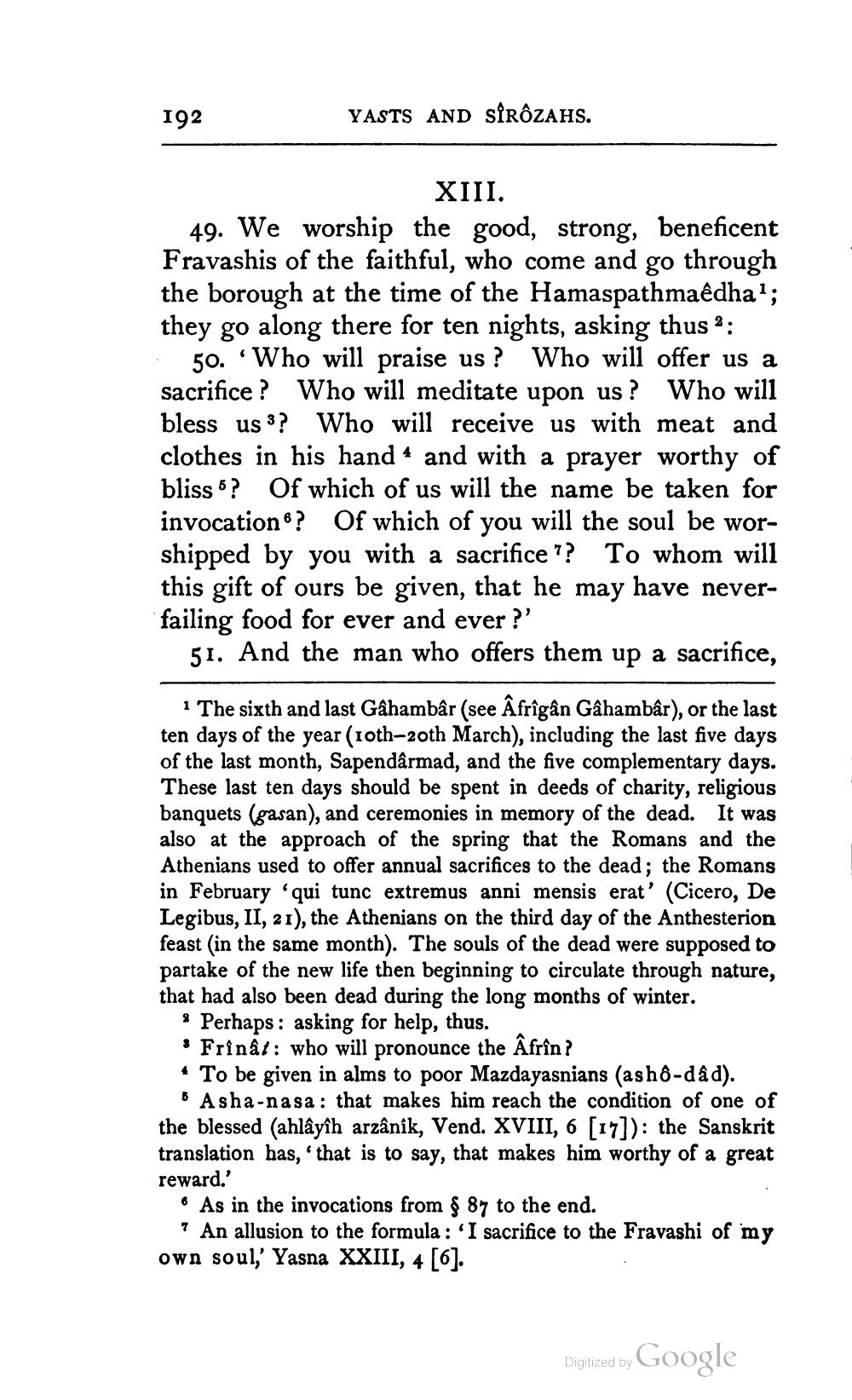________________
192
YASTS AND SÎRÔZAHS.
XIII.
49. We worship the good, strong, beneficent Fravashis of the faithful, who come and go through the borough at the time of the Hamaspathmaêdha"; they go along there for ten nights, asking thus 2:
50. Who will praise us? Who will offer us a sacrifice? Who will meditate upon us? Who will bless us 3? Who will receive us with meat and clothes in his hand 4 and with a prayer worthy of bliss 6? Of which of us will the name be taken for invocation? Of which of you will the soul be worshipped by you with a sacrifice ?? To whom will this gift of ours be given, that he may have neverfailing food for ever and ever?'
51. And the man who offers them up a sacrifice,
1 The sixth and last Gâhambâr (see Âfrîgân Gâhambâr), or the last ten days of the year (10th-20th March), including the last five days of the last month, Sapendârmad, and the five complementary days. These last ten days should be spent in deeds of charity, religious banquets (gasan), and ceremonies in memory of the dead. It was also at the approach of the spring that the Romans and the Athenians used to offer annual sacrifices to the dead; the Romans in February 'qui tunc extremus anni mensis erat' (Cicero, De Legibus, II, 21), the Athenians on the third day of the Anthesterion feast in the same month). The souls of the dead were supposed to partake of the new life then beginning to circulate through nature, that had also been dead during the long months of winter.
• Perhaps : asking for help, thus. . • Frināt: who will pronounce the Afrîn? - To be given in alms to poor Mazdayasnians (asho-dad).
* Asha-nasa: that makes him reach the condition of one of the blessed (ahlâyîh arzânîk, Vend. XVIII, 6 [17]): the Sanskrit translation has,' that is to say, that makes him worthy of a great reward.'
o As in the invocations from $ 87 to the end.
? An allusion to the formula : 'I sacrifice to the Fravashi of my own soul,' Yasna XXIII, 4 [6].
Digitized by Google




